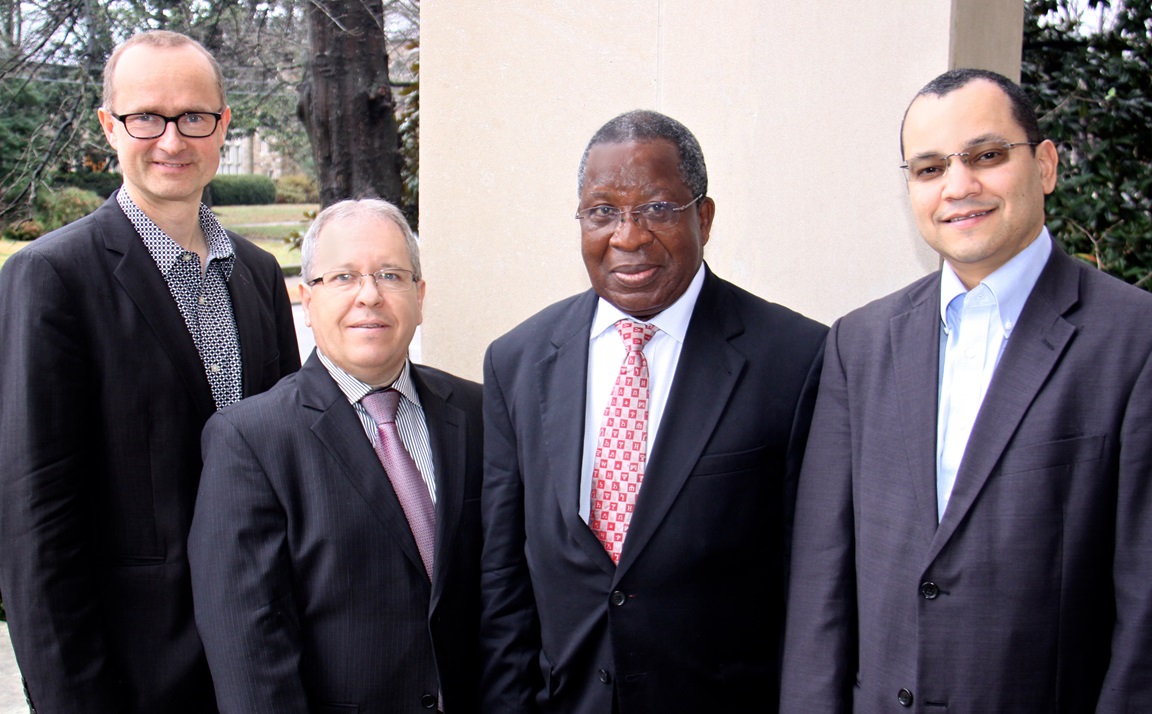While trends in the United States and parts of Europe may support the perception that Christianity will decline in coming decades, patterns worldwide indicate Christianity will grow.
A report from pewresearch.org states, "All of the world's major religious groups are poised for at least some growth in absolute numbers in the coming decades," and, "Four out of every 10 Christians in the world will live in sub-Saharan Africa."
The United Methodist Church through the General Board of Higher Education and Ministry is spurring the growth of Christianity through educational institutions rooted in the teachings of Christ. Today, there are nearly 800 institutions in the Methodist tradition in 80 countries.
Education was an integral part of the Methodist movement led by John and Charles Wesley in 18th-century England. John Wesley founded Kingswood, the first Methodist school in 1748. It still exists today.
In the late 1800s, Methodist missionaries who were traveling to Africa, Europe, Latin America and Asia began establishing schools. Many of those continue to be thriving, accredited higher education institutions. Among them are Pai Chai School in South Korea (1885); Piracicabano School, Brazil (1881); Madero School, Mexico (1873); Healdtown Training School, South Africa (1854); Embo Methodist School, Swaziland (1900); and Isabella Thoburn College, India (1886).
In the Wesleyan and Methodist tradition, teaching and learning must have a social emphasis. The key to eradicating slavery, poverty, hunger, illiteracy, unemployment and many other forms of oppression, education is the also key to promote peace, development and well-being.
Five regional hubs
Through The Methodist Global Education Fund for Leadership Development, Higher Education and Ministry works in five regional hubs encompassing Africa, Asia, Europe, Latin America and North America. The fund connects partners and institutions in each region. The global network supports, strengthens and develops United Methodist-related education and facilitates institutional partnerships and programs.
Each regional hub has a designated director who works within an affiliated university or related institution. Directors work on culturally specific programs, aligning their activities and plans with the connectional support of Higher Education and Ministry's efforts.
Latin America
The Rev. Luis Cardoso, director of the Latin America hub, has projects to promote leadership development across the continent. A priority is developing projects for contextual education. Working with local partners, the Latin America hub also develops training workshops that have drawn more than 500 participants.
The hub also provides technical assistance to help Methodist-related schools and churches raise funds for their projects. According to Cardoso, a seminar series, promoted in partnership with Higher Education and Ministry and the Latin American Association of Methodist Educational Institutions, created "a culture of fundraising and generosity." Staff from a school in Argentina attended one of Cardoso's workshops and learned to develop fundraising strategies that improved the quality of the technological equipment in the school's computer lab.
Asia
Global Education Fund
The Methodist Global Education Fund for Leadership Development (MGEFLD) is based on shared vision, shared responsibilities and shared costs. It supports education in five global regions: Africa, Asia, Europe, Latin America and North America. Each region raises resources and shares them with local programs
In Asia, Young Min Paik, a professor at Yonsei University in Seoul, Korea, and director of the Asia regional hub, teaches classes and manages the university's new Global Institute of Theology. The graduate-degree program for non-Korean international students provides full scholarships to attend the university. He is also working on the Asia-Pacific Association of Methodist-related Institutions (APAMEI), which formed in February 2012.
Paik also oversees projects at the regional level to reconnect with institutions disconnected from the Methodist church network. He hopes they will develop networks with other global schools, and with organizations such as Higher Education and Ministry and APAMEI.
IAMSCU
Celebrating 25 years in 2016, the mission of the International Association of Methodist Schools, Colleges and Universities (IAMSCU) is to increase the availability of educational opportunities throughout the world, improve the quality of education and enable educational institutions and those with Methodist traditions to collaborate. Connected to IAMSCU are seven regional associations of institutions of higher education and theological education in Africa, Asia, the Philippines, Europe, Latin America and North America. Learn more at www.iamscu.net
Europe
European regional director Michael Nausner, also dean of international affairs at Reutlingen School of Theology in Germany, sponsors stipends, events and courses that "deepen people's understanding of the global nature of the Methodist connection," he says. A major theological conference for students in 2016 will focus on reconciliation. Students will learn about the diversity in the European Methodist connection and network with others from the region.
Africa
The Africa Initiative was the first large project when Higher Education and Ministry initiated its global work in 1984. This led to the creation of Africa University in 1992. The initiative continues to expand with new programs, such as the e-reader project, distance-education learning centers and radio stations to disseminate lifesaving information, created in collaboration with other general agencies. There are nearly 20 Methodist institutions of higher education in Africa connected to Higher Education and Ministry, including Kenya Methodist University, Katanga Methodist University and Methodist University of Côte d'Ivoire, where the regional director Yed Angoran is based.
Reaping rewards
The work of the 19th-century missionaries continues to bear fruit. By connecting with schools and networks around the world, Higher Education and Ministry ensures that students receive opportunities to progress, to use the latest technologies available and have a chance to build a life and career with the highest quality education.
Betty Elrod is digital communications specialist at the General Board of Higher Education and Ministry in Nashville, Tennessee.
Originally published in Interpreter Magazine, November–December, 2015.

